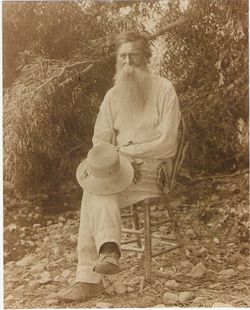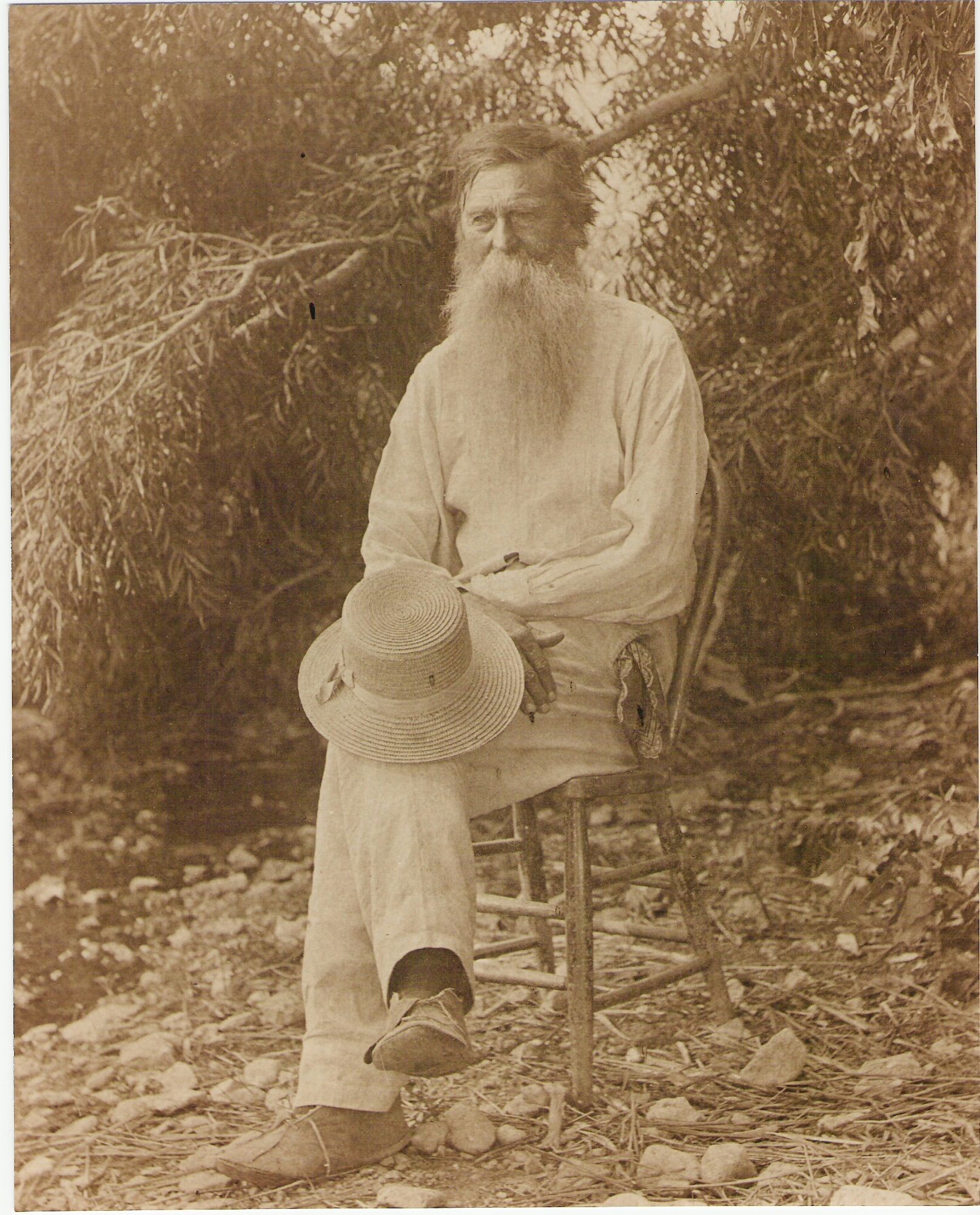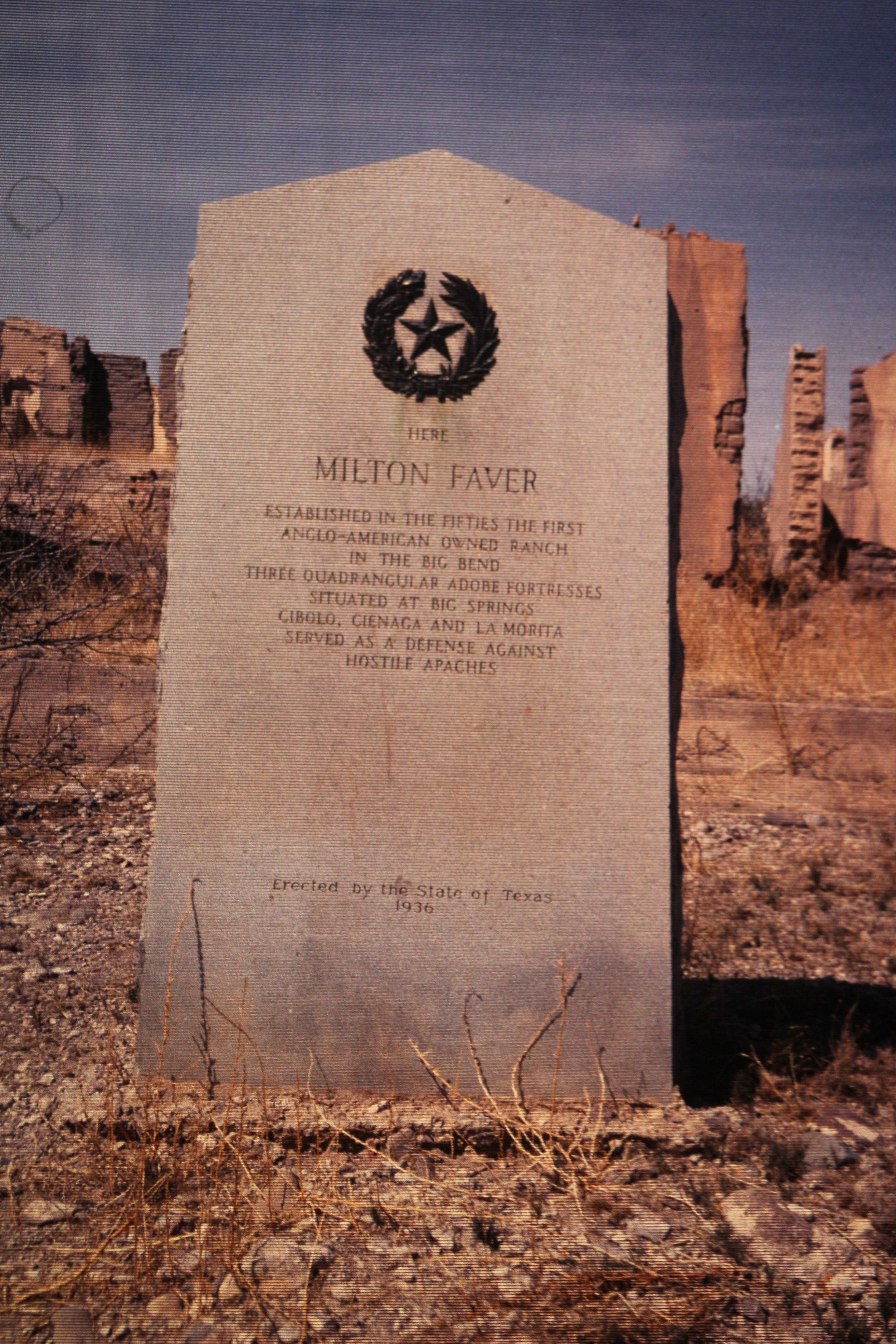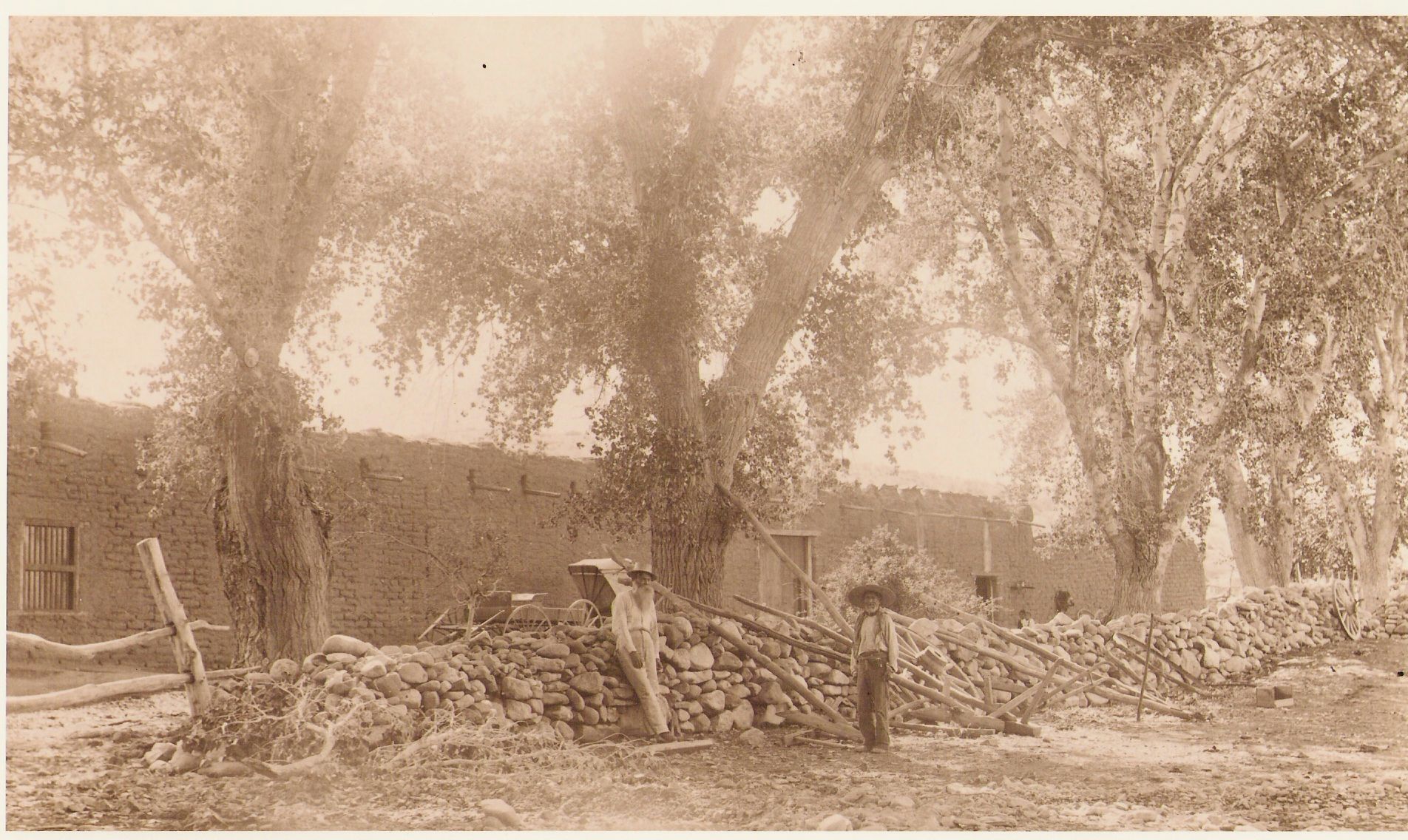Milton Faver (Don Melitón), first cattle baron of Presidio County, Texas, was born in Virginia about 1822. As a young man he fought a duel in Missouri and, believing he had killed his opponent, fled to Mexico. By 1840 Faver worked for Francisco De León in a flour mill in Meoqui, Mexico, 100 miles south of Ojinaga, then called Presidio del Norte. In Mexico, Faver met Francisca Ramírez, whom he soon married. Faver became a freighter between Meoqui and Ojinaga, and when the business became profitable he expanded it to freight goods over the Chihuahua Trail and the Santa Fe Trail. He made many hazardous trips with his men and once was severely wounded in an Indian attack. Sometime between 1855 and 1857 Faver's freighting business became so well established that he left it with employees and moved his family from Meoqui to Ojinaga, where he opened a general store. In 1857 Faver, his wife, and their only child, Juan, left Ojinaga and settled on the frontier in the Chinati Mountains of Presidio County, Texas, twenty-five miles north of the Rio Grande. Beginning in January 1858 Faver bought small tracts of land around three springs -- Cibolo, Cienega, and La Morita -- to secure a water supply for cattle and sheep. He established cattle ranches near Big Springs Cibolo and Cienega Spring and a sheep ranch at La Morita Spring. Faver made Cibolo his headquarters and built a 100-square-foot adobe block compound with circular defense towers at the north and south corners to protect the inhabitants from Indian attack. At Cienega he built an eighty-nine-foot stockade with defense towers at the northeast and southwest corners. Morita Ranch was unfortified and later suffered loss of life in a raid by Apache Indians.
Faver's prime market for cattle was the military at Fort Davis before and after the Civil War. During the war Fort Davis was abandoned, and without military protection cattlemen in the area suffered from Indian raids. Most of Faver's herd of 300 cattle was stolen. Left with only thirty-two corralled calves, he began to rebuild, and eventually his herd exceeded 10,000 cattle. Although he registered an F-shaped brand, most of his herd ran unbranded and wild in inaccessible mountain canyons. By 1883 Faver owned only 2,880 acres of land, but he used the open range and cheap Mexican labor to build his self-sufficient ranches. He paid the ranch hands 12½ cents per day to tend cattle, goats, and sheep and cultivate vegetables and fruits in gardens and orchards near the springs. Faver traded for anything he or the workers needed but could not grow or make themselves. Like other early area ranchers, he made homegrown peach brandy, which was a popular barter item. Faver was an autocrat and individualist; he made the law on his ranches and meted out his own justice. His ideas about money and cattle sales were eccentric. He accepted only hard money, and when he sold cattle he stood by the gate and received the coins for each animal as it passed.
In 1886 the aging Faver decided to get out of ranching. He offered D.G. Knight the use of his land, cattle, horses, and equipment for three years. Faver would pay the operating expenses for the first year. For his work, Knight would receive every third calf branded and every eighth steer on the range. Due to low market prices and underweight cattle, however, the contract proved unprofitable for Knight. At the expiration of the contract in 1889, Faver sold his remaining cattle to Joe Humphreys. Milton Faver died of natural causes in Presidio County. He was buried on Chinati Peak above Big Springs Cibolo as he requested. The site is now overgrown and secret.
. . . . . . . . . .
Milton Faver (Don Melitón), first cattle baron of Presidio County, Texas, was born in Virginia about 1822. As a young man he fought a duel in Missouri and, believing he had killed his opponent, fled to Mexico. By 1840 Faver worked for Francisco De León in a flour mill in Meoqui, Mexico, 100 miles south of Ojinaga, then called Presidio del Norte. In Mexico, Faver met Francisca Ramírez, whom he soon married. Faver became a freighter between Meoqui and Ojinaga, and when the business became profitable he expanded it to freight goods over the Chihuahua Trail and the Santa Fe Trail. He made many hazardous trips with his men and once was severely wounded in an Indian attack. Sometime between 1855 and 1857 Faver's freighting business became so well established that he left it with employees and moved his family from Meoqui to Ojinaga, where he opened a general store. In 1857 Faver, his wife, and their only child, Juan, left Ojinaga and settled on the frontier in the Chinati Mountains of Presidio County, Texas, twenty-five miles north of the Rio Grande. Beginning in January 1858 Faver bought small tracts of land around three springs -- Cibolo, Cienega, and La Morita -- to secure a water supply for cattle and sheep. He established cattle ranches near Big Springs Cibolo and Cienega Spring and a sheep ranch at La Morita Spring. Faver made Cibolo his headquarters and built a 100-square-foot adobe block compound with circular defense towers at the north and south corners to protect the inhabitants from Indian attack. At Cienega he built an eighty-nine-foot stockade with defense towers at the northeast and southwest corners. Morita Ranch was unfortified and later suffered loss of life in a raid by Apache Indians.
Faver's prime market for cattle was the military at Fort Davis before and after the Civil War. During the war Fort Davis was abandoned, and without military protection cattlemen in the area suffered from Indian raids. Most of Faver's herd of 300 cattle was stolen. Left with only thirty-two corralled calves, he began to rebuild, and eventually his herd exceeded 10,000 cattle. Although he registered an F-shaped brand, most of his herd ran unbranded and wild in inaccessible mountain canyons. By 1883 Faver owned only 2,880 acres of land, but he used the open range and cheap Mexican labor to build his self-sufficient ranches. He paid the ranch hands 12½ cents per day to tend cattle, goats, and sheep and cultivate vegetables and fruits in gardens and orchards near the springs. Faver traded for anything he or the workers needed but could not grow or make themselves. Like other early area ranchers, he made homegrown peach brandy, which was a popular barter item. Faver was an autocrat and individualist; he made the law on his ranches and meted out his own justice. His ideas about money and cattle sales were eccentric. He accepted only hard money, and when he sold cattle he stood by the gate and received the coins for each animal as it passed.
In 1886 the aging Faver decided to get out of ranching. He offered D.G. Knight the use of his land, cattle, horses, and equipment for three years. Faver would pay the operating expenses for the first year. For his work, Knight would receive every third calf branded and every eighth steer on the range. Due to low market prices and underweight cattle, however, the contract proved unprofitable for Knight. At the expiration of the contract in 1889, Faver sold his remaining cattle to Joe Humphreys. Milton Faver died of natural causes in Presidio County. He was buried on Chinati Peak above Big Springs Cibolo as he requested. The site is now overgrown and secret.
. . . . . . . . . .
Family Members
Advertisement
Records on Ancestry
Advertisement








